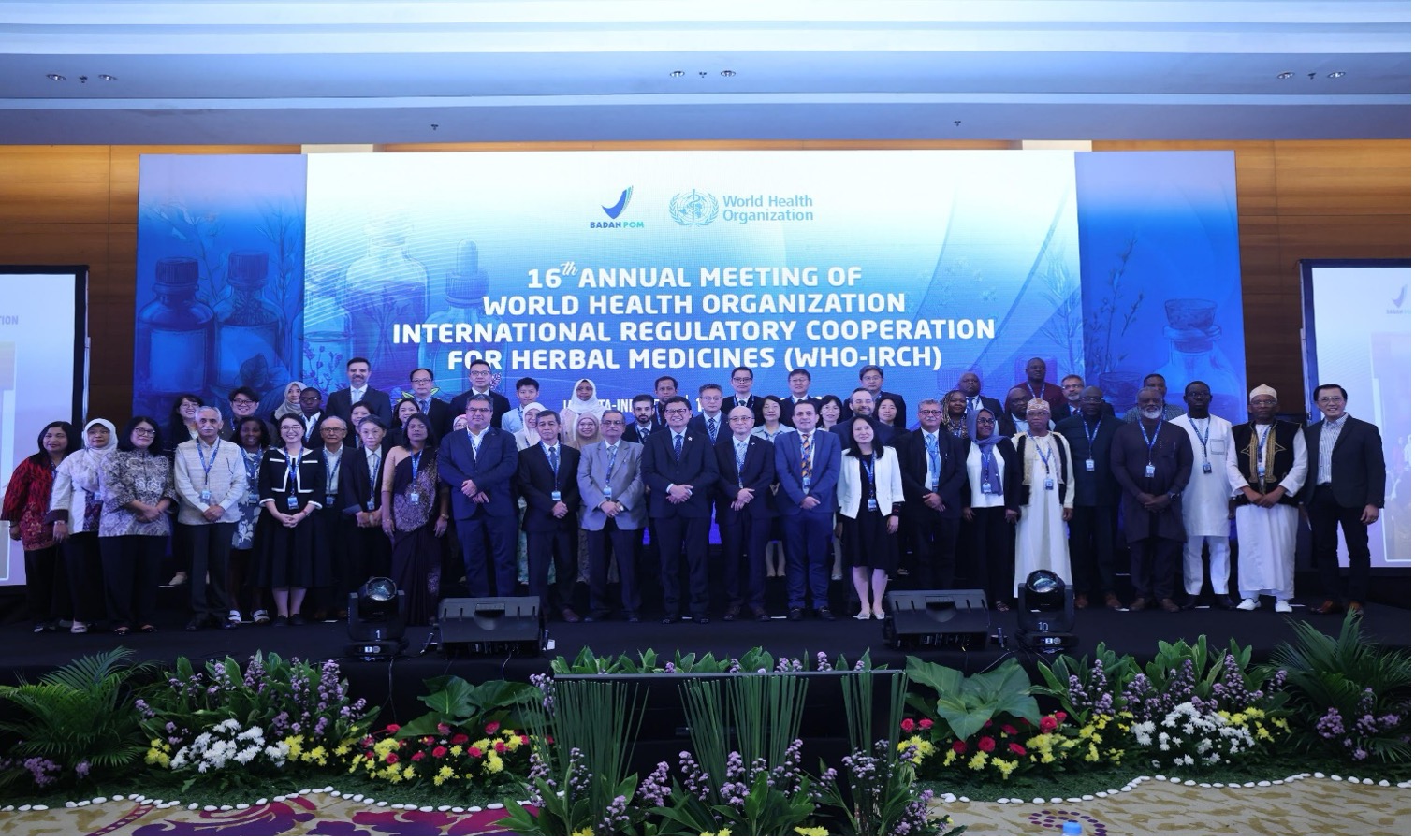
The 16th Annual Meeting of the World Health Organization International Regulatory Cooperation for Herbal Medicines (WHO-IRCH) was successfully convened in Jakarta, Indonesia, hosted by the Indonesian Food and Drug Authority (BPOM). The meeting brought together regulatory authorities, policy-makers, researchers, and WHO representatives from across the world to strengthen collaboration on the quality, safety, and efficacy of herbal medicines. A meeting of the WHO-IRCH Steering Group preceded the annual session on 13 October.
Strengthening global regulatory collaboration
In his opening address, Dr Sungchol Kim, Chair of WHO-IRCH, emphasized the importance of harmonized regulatory approaches, noting that “cooperation among Member States is essential to build confidence in herbal medicines through evidence-based regulation and mutual learning.” Dr Taruna Ikrar, Chairperson of Indonesia’s FDA, welcomed delegates and reaffirmed Indonesia’s commitment to regulatory excellence, highlighting the country’s long-standing jamu traditions and the growing role of traditional medicine in public health.
Over the three-day meeting, 57 representatives joined in person with 31 connected online representing 22 and 31 WHO IRCH members/observers respectively who shared updates on the status of herbal medicine regulation across WHO regions. Plenary and technical sessions focused on key themes including safety and regulation of herbal medicines (Working Group 1); quality control, standardization, and sustainability of herbal medicines (Working Group 2); as well as efficacy and intended use of herbal medicines (Working Group 3). Workshops conducted under WHO-IRCH Working Groups showcased recent capacity-building efforts, including training programmes organized earlier this year by the Governments of India (three days hybrid workshop for Working Groups 1 and 3) and China (two days online workshop for Working Group 2).
Advancing the global traditional medicine agenda
The WHO Secretariat presented progress on several key initiatives, including the WHO Global Traditional Medicine Strategy 2025–2034, the WHO Global Benchmarking Tool (GBT) for evaluation of national regulatory authorities for traditional medicine products, the WHO International Herbal Pharmacopoeia (IHP), and ongoing work on traditional medicine terminology harmonization and reference limits for contaminants in herbal medicines.
This year’s meeting holds particular significance in the lead-up to the 2nd WHO Traditional Medicine Global Summit, to be held from 17–19 December 2025 in New Delhi, India. A dedicated session on the “Regulation of TCIM Products” during the Summit is likely to build upon the discussions and recommendations emerging from the Jakarta meeting. The outcomes of the IRCH deliberations also contribute directly to implementing the new WHO Global Traditional Medicine Strategy 2025–2034, which emphasizes research, regulation, integration, and cross-sector collaboration to ensure the safe and effective use of traditional, complementary and integrative medicine worldwide.
Looking ahead
In his closing remarks, Dr Kim commended the active participation of Member States and expressed appreciation to the Government of Indonesia for its warm hospitality and excellent organization. He encouraged members to sustain the spirit of collaboration through ongoing dialogue, capacity-building, and knowledge sharing, reaffirming IRCH’s mission to protect and promote public health through effective regulation of herbal medicines.
The next WHO-IRCH Annual Meeting will be held in 2026.
